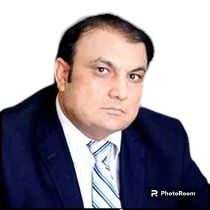Events in Pakistan
Pakistan has several notable events and national days that are celebrated or observed throughout the year. Here’s a month-by-month overview of some of the famous events in Pakistan:
January
- Kashmir Day (February 5):
-
A day of solidarity with the people of Jammu and Kashmir. Rallies, seminars, and discussions are held to support the right to self-determination for Kashmiris.
-
March
- Pakistan Day (March 23):
-
Commemorates the Lahore Resolution of 1940, which eventually led to the creation of Pakistan. The day is marked by a grand military parade in Islamabad and various celebrations across the country.
-
April
- Death Anniversary of Allama Iqbal (April 21):
-
This day honors the death anniversary of the poet-philosopher Allama Muhammad Iqbal, who is considered the ideological father of Pakistan.
-
May
- Labour Day (May 1):
-
International Workers’ Day is observed to honor the contributions of workers. Various labor unions organize rallies and events.
-
- Youm-e-Takbeer (May 28):
-
Celebrated to mark Pakistan’s successful nuclear tests conducted in 1998, making it the first and only Muslim-majority country to possess nuclear weapons.
-
August
- Independence Day (August 14):
-
The most important national holiday, celebrating Pakistan’s independence from British rule in 1947. The day is marked by flag hoisting ceremonies, parades, fireworks, and cultural events.
-
September
- Defence Day (September 6):
-
Commemorates the day in 1965 when Pakistani forces successfully defended the country against Indian aggression. The day is marked by military parades and events honoring the sacrifices of the armed forces.
-
- Air Force Day (September 7):
-
Honors the Pakistan Air Force’s role in defending the country during the 1965 war with India. Special ceremonies and air shows are held.
-
- Navy Day (September 8):
-
Celebrates the achievements and contributions of the Pakistan Navy, particularly its role in the 1965 and 1971 wars.
-
October
- Quaid-e-Azam Day (December 25):
-
Celebrates the birth of Muhammad Ali Jinnah, the founder of Pakistan. The day is marked by various events and ceremonies in honor of his leadership.
-
- National Disaster Awareness Day (October 8):
-
Observed to commemorate the victims of the 2005 earthquake and to raise awareness about disaster preparedness and management.
-
November
- Iqbal Day (November 9):
-
Celebrates the birth anniversary of Allama Muhammad Iqbal, the poet and philosopher who inspired the Pakistan Movement. The day is marked by educational events and discussions about his contributions.
-
December
- Quaid-e-Azam Day (December 25):
-
Celebrates the birth of Muhammad Ali Jinnah, the founder of Pakistan. The day is marked by various events and ceremonies in honor of his leadership.
-
- Christmas (December 25):
-
Celebrated by the Christian community in Pakistan. The day is marked by religious services and festive gatherings.
-
Religious Events
- Ramadan:
-
A holy month of fasting, prayer, and reflection observed by Muslims across Pakistan. The month culminates in the celebration of Eid-ul-Fitr.
-
- Eid-ul-Fitr:
-
A major religious holiday that marks the end of Ramadan. Celebrations include special prayers, feasts, and giving of alms (Zakat).
-
- Eid-ul-Adha:
-
Known as the Festival of Sacrifice, commemorating the willingness of Ibrahim (Abraham) to sacrifice his son in obedience to God. The day involves the sacrifice of animals, prayers, and distribution of meat to the poor.
-
- Ashura (10th of Muharram):
-
Commemorates the martyrdom of Imam Hussain, the grandson of Prophet Muhammad, in the Battle of Karbala. It is observed with mourning processions and religious events, particularly by the Shia Muslim community.
-



